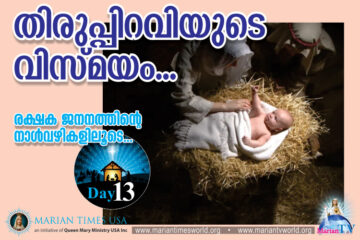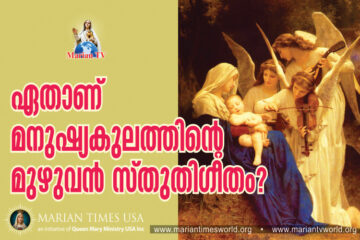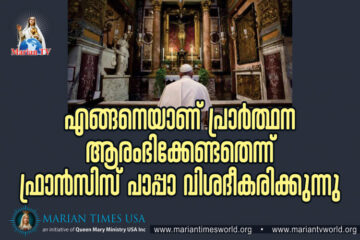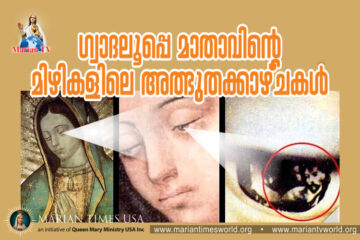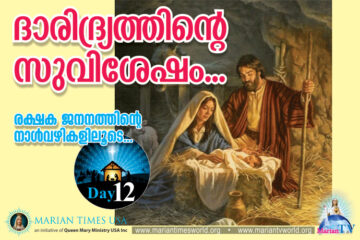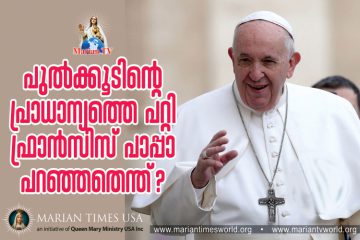WHAT IS THE MEANING OF THE PARABLE OF THE RICH FOOL? (SUNDAY HOMILY)
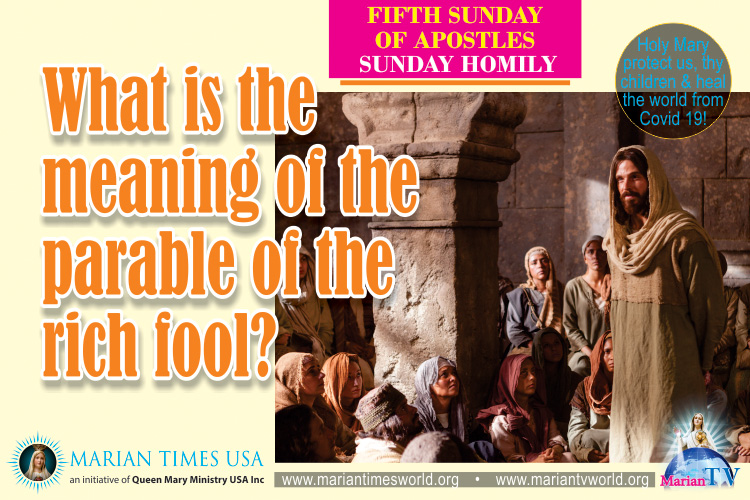
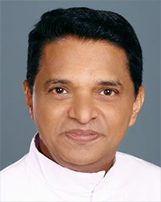
~ Fr. Abraham Mutholath,
Chicago, USA. ~
SUNDAY HOMILY FIFTH SUNDAY OF APOSTLES
INTRODUCTION
Through the parable of a “Rich Fool,” Jesus taught his listeners the folly of relying only on the resources of this world without caring for life after death and without helping those around us who need our assistance. He reminds us that our lifespan is not in our control. He asked his disciples to learn from how God takes care of worthless ravens and adorns short-living flowers. God’s chosen ones are far more valuable than these. He will provide his followers, who work on behalf of him, what they need. They can convert their earthly perishable resources to unperishable treasures in heaven. When they do so, they will be free from worldly anxieties and their hearts will be focused on heaven.
Bible Text
Luke 12:16-34
Parable of the Rich Fool.
(16) Then he told them a parable. “There was a rich man whose land produced a bountiful harvest. (17) He asked himself, ‘What shall I do, for I do not have space to store my harvest?’ (18) And he said, ‘This is what I shall do: I shall tear down my barns and build larger ones. There I shall store all my grain and other goods (19) and I shall say to myself, “Now as for you, you have so many good things stored up for many years, rest, eat, drink, be merry!”’ (20) But God said to him, ‘You fool, this night your life will be demanded of you; and the things you have prepared, to whom will they belong?’ (21) Thus will it be for the one who stores up treasure for himself but is not rich in what matters to God.”
Dependence on God.
(22) He said to [his] disciples, “Therefore I tell you, do not worry about your life and what you will eat, or about your body and what you will wear. (23) For life is more than food and the body more than clothing. (24) Notice the ravens: they do not sow or reap; they have neither storehouse nor barn, yet God feeds them. How much more important are you than birds! (25) Can any of you by worrying add a moment to your life-span? (26) If even the smallest things are beyond your control, why are you anxious about the rest? (27) Notice how the flowers grow. They do not toil or spin. But I tell you, not even Solomon in all his splendor was dressed like one of them. (28) If God so clothes the grass in the field that grows today and is thrown into the oven tomorrow, will he not much more provide for you, O you of little faith? (29) As for you, do not seek what you are to eat and what you are to drink, and do not worry anymore. (30) All the nations of the world seek for these things, and your Father knows that you need them. (31) Instead, seek his kingdom, and these other things will be given you besides. (32) Do not be afraid any longer, little flock, for your Father is pleased to give you the kingdom. (33) Sell your belongings and give alms. Provide money bags for yourselves that do not wear out, an inexhaustible treasure in heaven that no thief can reach nor moth destroy. (34) For where your treasure is, there also will your heart be.
Interpretation
Background of the passage
The background of today’s gospel will help us to understand the message better. It is given in verses 13-15. Someone from the crowd came seeking the help of Jesus to intercede for him to his brother for a fair distribution of their inheritance. We are not sure what was the issue. Both brothers were breaking up their brotherly affection on dividing the inheritance. Wealth from their ancestors was not bringing them happiness but conflict and enmity.
Jesus did not want to deal with wealth of this world. However, he made use of that opportunity to teach about greed of the rich and the anxiety of the poor. Oftentimes, rich person stands for oppressor and the poor for the oppressed because out of greed for wealth a person might exploit others and his selfishness would make others suffer. The greed or anxiety for wealth can hinder the spiritual growth and the goal of acquiring heavenly inheritance. Before presenting the parable of the “Rich Fool,” Jesus concluded: “Take care to guard against all greed, for though one may be rich, one’s life does not consist of possessions.” (Luke 12:15).
Parable of the Rich Fool.
(16) Then he told them a parable. “There was a rich man whose land produced a bountiful harvest.
Here is a rich man in the worldly sense, who got abundant harvest. The reason for bountiful harvest is not given. Probably the weather and soil were good. The rich man and his workers might be experienced and experts. However, he forgot that the good weather, the good soil, the health and availability of laborers were the blessings of God. God favored him with plentiful harvest not just for himself but for all people who labored for it and the people living around him. He became such a slave of his wealth that he ignored God and his neighbors. He wanted to save everything for himself and enjoy his life.
This man is rich in material wealth and poor in spiritual life and hence a rich fool. He was a fool because he disregarded God’s providence and God’s commandment to support the poor. Besides, he was not concerned about the uncertainties of this life, his spiritual growth, and savings for eternal life.
(17) He asked himself, ‘What shall I do, for I do not have space to store my harvest?’ (18) And he said, ‘This is what I shall do: I shall tear down my barns and build larger ones. There I shall store all my grain and other goods
This selfish man thought of “I” and “my” only. He was in a world of his own and was not concerned about his employees, family, or neighbors who might be starving. His only concern was that his store was not sufficient to hold the unusual harvest.
When we gain more salary, unexpected profit from business, or win a lottery, how do we manage the additional income? Our concern might be to build a bigger house, buy an expensive car, lead a luxurious life or invest in an income generating project. There were people who when they became rich, continued their simple life and increased their support to those in need. That is what Jesus is expecting from us Christians.
(19) and I shall say to myself, “Now as for you, you have so many good things stored up for many years, rest, eat, drink, be merry!”’
This self-centered person was trying to make a heaven in this world with the riches he got by God’s providence. He allotted his time for relaxation, eating, drinking and merry making. He had no time for prayer and fellowship with other humans.
(20) But God said to him, ‘You fool, this night your life will be demanded of you; and the things you have prepared, to whom will they belong?’
God becomes a character in this parable questioning the rich man whom He blessed with plentiful harvest. The worldly savings of a man will be lost for him with his death. The folly of such material savings is expressed in Ecclesiastes 2:18-19, “I detested all the fruits of my toil under the sun, because I must leave them to the one who is to come after me. And who knows whether that one will be wise or a fool? Yet that one will take control of all the fruits of my toil and wisdom under the sun. This also is vanity.” God did not give the rich fool much time to prepare for afterlife because the rich man already made his decision ignoring God and God’s people. He had to leave the world that night itself.
(21) Thus will it be for the one who stores up treasure for himself but is not rich in what matters to God.”
The rich has two options:
1) He can store the treasure for himself without any concern for others. However, he might end up in dissatisfaction because he cannot enjoy it forever and his lifespan is limited.
2) He can make use of his riches to uplift others so he can be rich in front of God and enjoy his riches in heaven. His sharing will give him joy in this world and eternal joy in heaven. The willingness to share resources with others is a gift of God. Jesus wants the Christians to follow this option.
Dependence on God.
(22) He said to [his] disciples, “Therefore I tell you, do not worry about your life and what you will eat, or about your body and what you will wear.
After talking to the public, Jesus turned towards his disciples who were to focus on the establishment of the Kingdom of God. They had already left their homes, worldly possessions and income to follow Jesus. They should not worry about their necessities including food and clothing. When Jesus sent out the 12 to preach he said: “Take nothing for the journey, neither walking stick, nor sack, nor food, nor money, and let no one take a second tunic.” (Luke 9:3). They had successful stories to share when they returned.
(23) For life is more than food and the body more than clothing.
God’s care for the life of humans, especially when they are loyal to God, is clear from many instances in the Bible.
God prepared the universe including resources for food and clothing in it for eternity before creating Adam and Eve. God continues preserving the universe with great care for the comfort of humans as parents do for their children. Even before the original sin, Adam had the co-responsibility to “cultivate and care” the garden (Genesis 2:15). As children, we need to obey God doing our part, and then God will take care of the rest.
During the Great Flood, the faithful believer Noah and his family of eight people were protected from deluge when all others drowned. The animals and everything they needed were preserved in the ark for 378 days.
During the great famine for seven years, God protected Jacob along with his 12 children and their families through the providential exile of Joseph to Egypt and his elevation as the governor of Egypt. Pharaoh allotted the fertile land of Goshen in Egypt for Jacob and his sons where they lived for centuries.
During the 40 years of Israel’s wandering in the desert, God provided water, manna, and quail for their nourishment. “He therefore let you be afflicted with hunger, and then fed you with manna, a food unknown to you and your ancestors, so you might know that it is not by bread alone that people live, but by all that comes forth from the mouth of the LORD. The clothing did not fall from you in tatters, nor did your feet swell these forty years. So you must know in your heart that, even as a man disciplines his son, so the LORD, your God, disciplines you. Therefore, keep the commandments of the LORD, your God, by walking in his ways and fearing him.” (Deut. 8:3-6).
Jesus fed 5,000 and 4,000 when they finished listening to the Word of God. These are also examples of how God is concerned about our physical needs without our asking for them.
The message of the salvation history of Israel and that of Jesus is that the children of God should focus on listening, sharing and obeying the Word of God and then God will provide them with everything needed as a father takes care of his children. When we take care of the necessities of those who need them, we become the agents of God for them.
(24) Notice the ravens: they do not sow or reap; they have neither storehouse nor barn, yet God feeds them. How much more important are you than birds!
Jesus here refers to Psalm 147:9. “He giveth to the beast his food, and to the young ravens which cry.” Ravens are disgraceful beings which are disregarded by humans because they are legally unclean for Jews. The old ravens abandon the young ravens and they expel them out of their nests at a very early stage. It was believed that they lived upon dew. The Jews believed that flies and worms arise out of their dung, and enter the mouths of the young ravens. Thus, God feeds the deserted young ravens and makes them survive. In the book of Job, God asks: “Who provides nourishment for the raven when its young cry out to God, wandering about without food?” The ancient fathers interpreted ravens as gentiles and their young ones as early Christians whom God nourished when they were helpless and cried out to God for help.
Jesus was contrasting invaluable ravens with valuable humans. Compared to ravens, humans can sow, reap and keep the produce in storehouses or barns. God cannot abandon those who cry out to Him, those who work on his behalf, or those who obey his commandments.
(25) Can any of you by worrying add a moment to your life-span?
The original text can mean adding height of a person or prolong the length of life. From the context of the passage and based on the natural growth of humans, adding the life-span is more relevant. People are worried not to increase their height but to prolong their life. Anxiety cannot extend our life because it is God who determines the time of our death.
(26) If even the smallest things are beyond your control, why are you anxious about the rest?
Anxiety over life is not productive. What we need is loyalty to God and engagement in His mission. God will take care of the rest for us as God has been doing it for humanity since the beginning of creation. We must admit that the control of the universe and our lives are not in the full control of scientists, technologists or physicians, but only in God.
(27) Notice how the flowers grow. They do not toil or spin. But I tell you, not even Solomon in all his splendor was dressed like one of them.
While the example of the ravens was to contrast with the anxiety over food, Jesus uses the example of the flowers in the field to contrast it with the clothing of the most glorious King Solomon. The richest and wisest king of the world was dressed in well-knit purple dress. However, the natural flowers in the field that are not cultivated by anyone but by God alone, is more splendid than the gold-embroidered robes knit by humans for King Solomon. These flowers last only few days while King Solomon reigned for 40 years. God adorns the short-lived flowers far better than the artificial robes of the long-reigned king.
(28) If God so clothes the grass in the field that grows today and is thrown into the oven tomorrow, will he not much more provide for you, O you of little faith?
Again, the comparison is continued between the disciples of Jesus, who are valuable, to the flowering plants that are perished within few days. If God adorns the short-lived plants that are dried and burnt in the oven then how much would He cloth the people who are created in his own image and likeness? Grass, and flowers that grow with them, were cut and used as fuel for cooking because of the scarcity of wood in Palestine. The oven was the portable clay pot used to bake bread. If in his amazing design, God beautifies even the small plants that perish within a few days, then how much more would God clothe the disciples of Jesus? In the book of Genesis, we see how God clothed Adam and Eve with animal skins to cover their nakedness and shame replacing the fragile cloth they made from fig leaves (Genesis 3:7, 21).
O you of little faith?
The disciples were believers but were lacking firm faith. Jesus used the same phrase “O you of little faith” on other occasions also: Before calming the storm in the lake (Mathew 8:26), when Peter began to sink in the lake while walking on the water (Mathew 14:31), and when the disciples had no bread with them (Mathew 16:8). They became full believers only after they received the Holy Spirit on the day of Pentecost.
(29) As for you, do not seek what you are to eat and what you are to drink, and do not worry anymore.
Jesus then returned to the context of the parable of the “Rich Fool.” The main concern of the disciples shall not be food and drink, though they are necessities of life. They must trust in the providence of God and focus in their mission. During the public ministry, Jesus and his disciples were fully occupied in the preaching that they were fed and sheltered by others. “Afterward he journeyed from one town and village to another, preaching and proclaiming the good news of the kingdom of God. Accompanying him were the Twelve and some women who had been cured of evil spirits and infirmities, Mary, called Magdalene, from whom seven demons had gone out, Joanna, the wife of Herod’s steward Chuza, Susanna, and many others who provided for them out of their resources.” (Luke 8:1-3).
(30) All the nations of the world seek for these things, and your Father knows that you need them. (31) Instead, seek his kingdom, and these other things will be given you besides.
“All the nations of the world” stood for the Gentiles who did not know God and experienced his providence. Since they did not follow the true God, they were worried and anxious seeking the material needs. The disciples of Jesus are supposed to seek the Kingdom of God. Then God will provide them everything they need. God had done this in the history of Israel and during the public ministry of Jesus. Christian missionaries throughout the centuries also trusted in these words of Jesus and they successfully continue their mission in trusting the providence of God.
(32) Do not be afraid any longer, little flock, for your Father is pleased to give you the kingdom.
The “little flock” means the disciples of Jesus. They were assured of the Kingdom of God because of their faithfulness to God. So, they need not be anxious of the material needs. What they were supposed to seek was the fullness of God’s kingdom in the life after death.
(33) Sell your belongings and give alms. Provide money bags for yourselves that do not wear out, an inexhaustible treasure in heaven that no thief can reach nor moth destroy.
Jesus reminded that the earthly treasures could be perished or could be stolen. However, converting the earthly treasures to that of heaven would be a permanent and unperishable possession of the owner.
Jesus told the rich young man who came asking him “Teacher, what good must I do to gain eternal life?” (Mathew 19:16), Jesus answered: “If you wish to be perfect, go, sell what you have and give to the poor, and you will have treasure in heaven. Then come, follow me.” So, eternal life is guaranteed to the one who gives up the material possessions for helping others and following Jesus. The early Christian community literally followed this as recorded in the Acts of the Apostles: “All who believed were together and had all things in common; they would sell their property and possessions and divide them among all according to each one’s need.” (Acts 2:44-45). However, this was later applied in the strict sense only to the consecrated priests and religious.
(34) For where your treasure is, there also will your heart be.
When our treasure is in the safe keep of God, our focus also will be centered there. Whereas, if we care only for earthly treasure, our concentration will be placed here. If the treasure is here, the owner would become selfish and might even try to exploit others to increase the treasure. He will be anxious of getting it lost by losing value, perishing, or stealing. Since he trusts in the material wealth, he might forget God and people in need of his support. On the contrary, if the treasure is in heaven, the owner will try to increase it by doing more and more good and charity works in this world.
Message
- Judas was delighted to follow Jesus. Eventually, the greed for money enslaved him and defeated his spiritual life. Despite all the warnings Jesus gave him, he betrayed his master and spoiled his earthly and eternal life and became an ever-remembered character of betrayal.
- Humans seek wealth for happiness and comfort. But, wealth need not provide us joy if we don’t use them prudently for our spiritual wellbeing. The resources of this life are to be used to become rich in heaven. Even if we lack resources in this world, God the Father will guard us. Jesus taught that life in the afterlife is more important and the duration of our lifespan in this world is not in our control.
- Zacchaeus is a positive example for us. When Jesus went to the house of Zacchaeus, he voluntarily said, “Behold, half of my possessions, Lord, I shall give to the poor, and if I have extorted anything from anyone I shall repay it four times over.” Jesus responded: “Today salvation has come to this house.” (Luke 19:8-9). Let us find salvation by the proper utilization of what God gives us for our efforts.
- Unlike the “Rich Fool,” let us acknowledge the providence of God in our lives and obey His commandment to support the people in need.
- We should be conscious that God can call us any time and we should have the resources in heaven, our permanent residence.
- Let us remember the words of Jesus: “For what does it profit a man if he gains the whole world and loses or forfeits himself? (Luke 9:25).
മരിയന് ടൈംസിലെ ഇന്നത്തെ പ്രധാനപ്പെട്ട അപ്ഡേറ്റുകള് താഴെ ലഭിക്കുന്നതാണ്.


